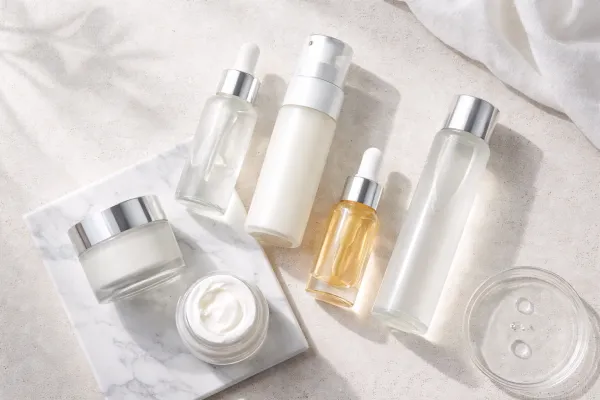Exploring the Connection: Can Stress Cause Skin Problems?
Discover how stress impacts skin health and learn tips for managing stress for a clearer complexion.

Stress can have a surprising impact on our skin.
Many people notice that when they feel anxious or overwhelmed, their skin may react in various ways.
This article explores the connection between stress and skin problems, why this happens, and what can be done to maintain healthy skin despite the pressures of life.
Key Takeaways
- Stress can lead to skin issues like acne and eczema.
- Cortisol, a stress hormone, can disrupt skin health.
- Regular exercise and a balanced diet can help manage stress.
- Mindfulness techniques, such as meditation, can improve skin conditions.
- Consulting a dermatologist is important if skin problems persist.
Understanding the Link Between Stress and Skin Problems

How Stress Affects the Skin
We all know that stress can really mess with our skin. When we’re stressed, our bodies release a hormone called cortisol, which can lead to all sorts of skin issues.
This hormone can make our skin more oily, leading to breakouts, and it can also slow down healing.
It’s like a double whammy!
Common Skin Issues Triggered by Stress
So, what kind of skin problems can stress cause? Here are a few common ones:
- Acne: Stress can trigger breakouts by increasing oil production.
- Eczema: Stress can cause flare-ups, making our skin itchy and red.
- Psoriasis: This condition can worsen with high stress levels.
- Rashes: Some people even develop rashes when they’re stressed out.
Scientific Studies on Stress and Skin Health
Research shows a strong connection between stress and skin health.
For instance, studies have found that people with chronic stress often experience more severe skin conditions. It’s a vicious cycle: stress affects our skin, and skin problems can increase our stress levels.
Remember, taking care of our skin is a journey, not a race. Let’s enjoy the process together!
The Science Behind Stress-Induced Skin Conditions

Role of Cortisol in Skin Health
When we’re stressed, our bodies release a hormone called cortisol.
This hormone can really mess with our skin.
Cortisol breaks down collagen and elastin, which are super important for keeping our skin looking youthful. It can also make our skin more sensitive and prone to irritation.
Impact of Chronic Stress on Skin Aging
Chronic stress can speed up the aging process of our skin. It leads to more fine lines and wrinkles, making us look older than we really are. Stress can also cause our skin to lose its natural glow, leaving it looking dull and tired.
Stress and Immune Response in Skin
Stress doesn’t just affect how our skin looks; it can also weaken our immune system. This means our skin is less able to fight off infections and can become more susceptible to conditions like eczema and psoriasis.
Remember, managing our stress is crucial for maintaining healthy skin. Let’s take care of our mental health to keep our skin glowing!
In summary, understanding the science behind stress and skin health helps us realize how important it is to manage our stress levels. By doing so, we can improve not just our mental well-being but also our skin’s appearance and health!
Managing Stress for Healthier Skin
Stress can really mess with our skin, and we all know it!
Taking time to relax is key to keeping our skin looking its best. Here are some fun ways we can manage stress:
Mindfulness and Meditation Techniques
- Meditation: Just a few minutes a day can help clear our minds.
- Deep Breathing: Simple but effective; it calms our nerves.
- Hobbies: Engaging in activities we love can be a great escape.
Exercise and Its Benefits for Skin
Getting active is not just good for our bodies; it’s great for our skin too! Here’s how:
- Increased Blood Flow: Helps deliver nutrients to our skin.
- Sweating: Cleans out our pores and removes toxins.
- Boosts Mood: A happy mind leads to happy skin!
Dietary Changes to Combat Stress
What we eat really matters! Foods rich in vitamins and minerals can help our skin glow. Here’s a quick list of skin-friendly foods:
- Nuts and Seeds: Great for collagen production, thanks to copper.
- Legumes: Packed with lysine, which is essential for skin repair.
- Fruits and Veggies: They provide antioxidants that fight skin damage.
Remember, our skin deserves the best care. Always listen to it and adjust our routine as needed!
Common Skin Conditions Linked to Stress

Stress can really mess with our skin, and we’re not just talking about the occasional breakout.
When we’re stressed, our skin can react in some pretty noticeable ways.
Let’s dive into a few common skin issues that stress can trigger:
Acne and Breakouts
When stress hits, our bodies produce more oil, which can lead to clogged pores and, you guessed it, acne! Here are some key points:
- Increased oil production
- Higher chances of breakouts
- Stress can worsen existing acne
Eczema and Psoriasis
These inflammatory conditions can flare up when we’re feeling anxious or overwhelmed. Stress can make symptoms worse, leading to:
- Red, itchy patches
- Increased dryness
- More frequent flare-ups
Rosacea and Hives
Stress can also trigger conditions like rosacea, which causes redness and visible blood vessels on our face. Hives, those itchy welts, can pop up too!
Here’s what to keep in mind:
- Rosacea can lead to persistent redness.
- Hives can appear suddenly and be quite uncomfortable.
- Both conditions can create a cycle of stress and skin issues.
Remember, managing stress is crucial for keeping our skin happy and healthy! Let’s take care of ourselves and our skin together!
Lifestyle Changes to Improve Skin Health

When it comes to keeping our skin happy, making a few lifestyle changes can really help! Here’s what we can do:
Importance of Sleep
Getting enough sleep is a game changer for our skin. When we sleep, our body repairs itself, including our skin. So, let’s aim for at least 7-9 hours of sleep each night to wake up looking fresh!
Hydration and Skin Health
Staying hydrated is key! Drinking enough water helps our skin stay plump and reduces dryness. Here’s a simple way to remember:
- Aim for at least 8 glasses a day.
- Carry a water bottle to sip throughout the day.
- Add slices of lemon or cucumber for a refreshing twist.
Avoiding Common Skin Irritants
We often forget about our makeup brushes, but they can hold a lot of bacteria. It’s super important to:
- Wash them at least once a week.
- Use gentle soap to clean them.
- Let them dry completely before using again.
Remember, our skin deserves the best care. Always listen to it and adjust our routine as needed!
When to Seek Professional Help
Signs You Need a Dermatologist
Sometimes, our skin can throw us some serious curveballs, and it’s important to know when to call in the pros. Here are some signs that might mean it’s time to see a dermatologist:
- Persistent issues: If we have a rash or breakout that just won’t go away, it’s time to get it checked out.
- Severe irritation: If our skin is red, swollen, or painful, we shouldn’t ignore it.
- Changes in moles: Any changes in size, shape, or color of moles should be evaluated.
Treatment Options for Stress-Related Skin Issues
When we finally decide to see a dermatologist, they can offer a variety of treatments tailored to our needs.
Here’s a quick look at some options:
- Topical treatments: Creams and ointments can help soothe and heal our skin.
- Oral medications: Sometimes, pills can help manage more severe conditions.
- Professional procedures: Treatments like chemical peels or laser therapy can be effective for stubborn issues.
Integrating Mental Health Support
It’s not just about the skin; our mental health plays a huge role too! Here’s how we can integrate mental health support into our skincare journey:
- Talk therapy: Speaking with a therapist can help us manage stress and anxiety.
- Mindfulness practices: Techniques like meditation can improve our overall well-being.
- Support groups: Connecting with others who understand can be really helpful.
Remember, our skin deserves the best care. Always listen to it and adjust our routine as needed!
Wrapping It Up: Stress and Your Skin
Stress can really mess with our skin, causing issues like breakouts and dryness.
But don’t worry, there are ways to help! Taking time to relax, eating healthy, and getting enough sleep can make a big difference.
Remember, your skin is like a mirror reflecting how you feel inside. So, let’s take care of ourselves, both mentally and physically, to keep our skin looking its best.
Stay chill, and your skin will thank you!




